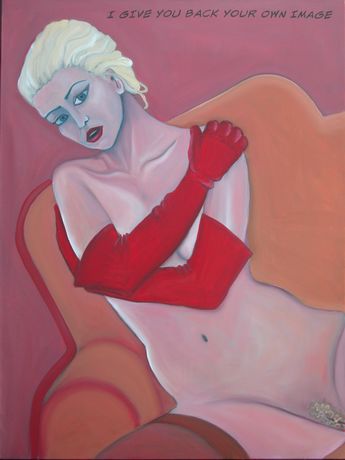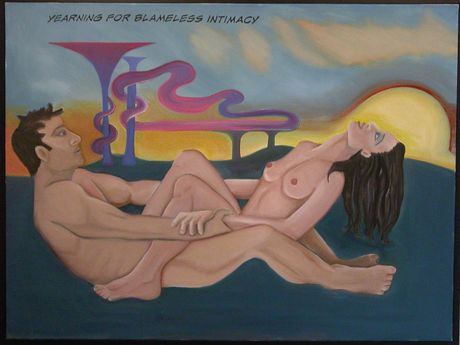

We are seeing the development a new world of sexual exchange on the internet which brings into question the value system which has previously defined this area of interpersonl activity. The growth of animated, interactive sites has allowed both men and women to explore a landscape of complex personal sexual possibility. Individuals seek to create real-time erotica, written with another person, producing dynamic hypnotic sexual behaviours for their avatars on screen.
Avatar bodies are always perfect. They are forever young, without disability and nearly always lean and athletic. The operators of avatars are infinitely less lovely. The body dismorphia when people spend long periods associating with an avatar can only be imagined. For some with disabilities the possibility of moving with ease as an avatar is wonderful. For less attractive individuals, low self esteem may be reinforced by learning just how much more fun can be had by the young and lovely. The kinds of relationships that are formed when interacting through the medium of the internet and avatars appear real but the very newness makes them in need of definition. People obviously do connect with the visual reference of the avatar and this will even out the playing field for issues such as age, health, size and beauty. With that more even start the only issue left for forming a relationship is intellect. When people connect it is in terms of equality of intelligence, empathy, humour and of course sexual imagination. It might seem the perfect dating ground. There is however something vital missing in terms of the connectivity of people using this medium. The smell, taste and sight of a relationship are denied and this means that it is a brave person who ventures to take the relationship beyond the medium. Most realise that they are best to stay within the confines of the perfect body that allows them to role play their idealised self.
The relationship between the artist as creator within society has changed as a consequence of these virtual environments because everyone has become a creator, at least of themselves, within this context. Each person is alone at a screen reinforcing isolation while a new closeness with its own rules is created in the virtual world. The lonely crowds of cyber space act out fantasies using text to build the story. The text does not reduce the visual to the verbal but creates interplay between form and content that is a normal view experience for computer users today. A new form of intimacy is developed within a purely psychic environment and a two phase reality is created absorbing our desires and giving them back to us through the visual of a pixilated human figure on screen. The social and sexual relationship between people becomes mediated by text.
The computer has become an object of postmodernism where a new reality exists as an extension of our dreams where we are all free to investigate our true nature. Within this context a possibility of utopia without social differentiation now exists. Here deception is no longer an issue since all virtual reality is a deception. Individuals are now able to discover a new relationship with their personal identity. The text reminds us that the fantasy is created in communication with another unseen individual. Technology has become an extension of the playerŐs physical body performing the virtual sexual fantasies as controlled experiments. It is an indictment of current social networks that so many chose to send time in this hedonistic pleasurable virtual space, which they control. The imagination of unmediated space where people are free to define their own morality is the new frontier for moral debate. The sex industry does not hold sway here because individuals are inventing the tension of exchange where longing, desire and love are the iconography.
As these virtual relationships become an established part of our vocabulary of friendships issues around monogamy and faithfulness with be tested. The whole area of personal intimacy may need redefining. Men and women who are in a monogamous relationship for a long period will inevitably fantasise about others. Pornography has always been used by some to make visual this imaginary unfaithfulness. Cyber intimacy can be another just tool for the imagination. Of course on line relationships involve romance, carnal emotions and a true knowing of the other person. The significant other in an on line relationship is partly real as gleaned from conversation; partly imagined and partly described (this may be real or total fiction). The relationships formed with virtual others do therefore constitute a kind of unfaithfulness. In time society will judge the parameters of acceptability for this. A complex multilayered sexual landscape may be a reality of the future. As a growing minority are choosing to live alone, even if in a long term relationship, the way in which on line contact can be 24/7 has an appeal not only for sexual release but as a support network and general friendship mechanism.
It seems we all make love most often with ourselves in life. This has become transparent since people switch with such ease to sexual relationships on line where actual physical contact never happens. The open knowledge of this norm may not change behaviours but will demystify an area of human activity that has been hidden by layers of culture. Is it possible to love a person who you have never met? Once this would have been an easy thing to answer, now the new technologies make this a question of definition.